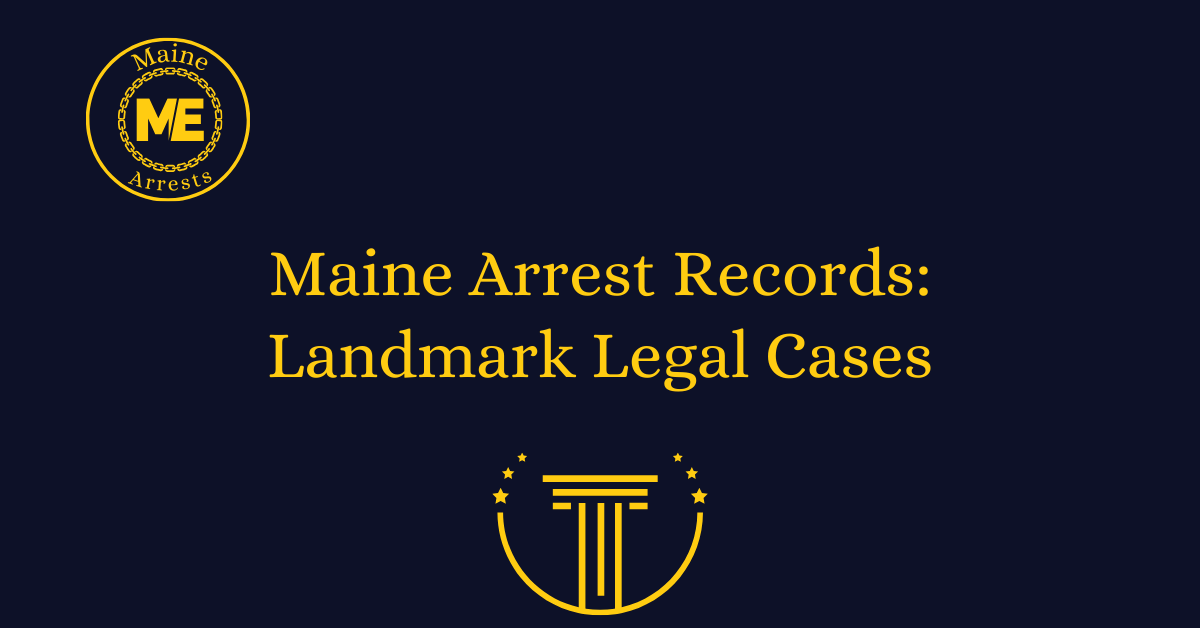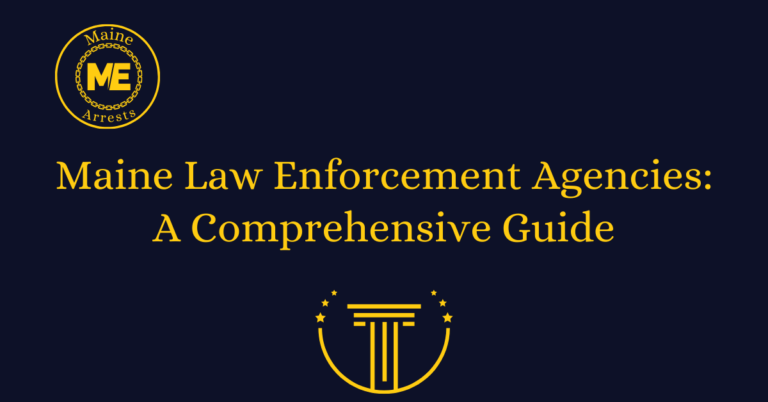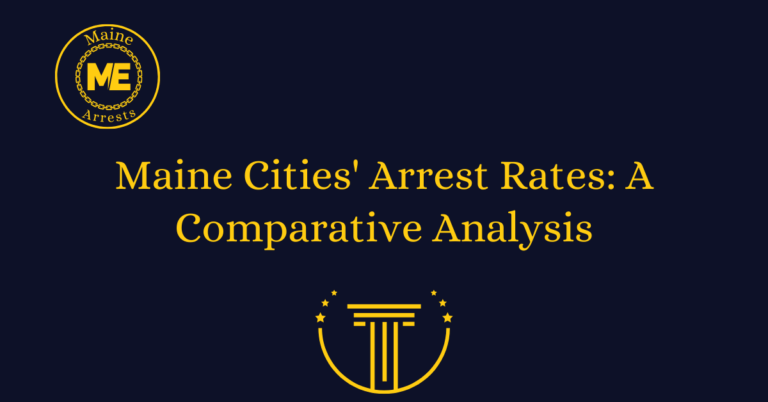Maine Arrest Records: Landmark Legal Cases
Welcome to our comprehensive guide on Maine Arrest Records. In this detailed report, we will explore some of the landmark legal cases that have shaped the state’s criminal justice system. From high-profile trials to groundbreaking rulings, these cases have had a profound impact on the way justice is served in Maine.
Delve into the fascinating world of Maine’s legal history as we uncover the stories behind these significant arrests and the subsequent legal battles that unfolded. Gain insight into the intricate workings of the state’s judicial system and understand the legal precedents set by these groundbreaking cases. Whether you are a legal professional, a student of law, or simply have a keen interest in the subject, this guide is designed to provide you with a comprehensive and informative overview of Maine’s arrest records.
Maine’s Landmark Legal Cases
Discover the pivotal legal battles that have shaped Maine’s criminal justice system. Maine’s legal history is rich with landmark cases that have played a crucial role in shaping the state’s legal framework. One notable case is Donoghue v. Stevenson, which originated in Maine and set a precedent in the realm of product liability law. In this case, the court established the principle that manufacturers owe a duty of care not only to the immediate purchasers of their products but also to foreseeable third parties who might be affected by their negligence.
Another significant case is State v. Leger, which addressed issues of self-defense and the use of force. The court’s decision in Leger not only clarified the legal standards for self-defense but also contributed to the ongoing national discourse on the boundaries of justified force in protecting oneself. These landmark cases exemplify Maine’s role in shaping legal doctrines that extend beyond its borders, influencing legal reasoning and principles on a broader scale.
The Case of State v. Smith: A Turning Point in Criminal Procedure
The landmark case of State v. Smith marked a pivotal moment in the realm of criminal procedure, reshaping the landscape of legal rights and due process. The case, which unfolded in a state court, centered around critical issues such as search and seizure, ultimately prompting a reevaluation of established legal norms. The court’s decision not only had immediate implications for the parties involved but also set a precedent that rippled through the criminal justice system.
In its ruling, the court in State v. Smith clarified and, in some instances, expanded the boundaries of constitutional protections. The case not only provided clarity on the admissibility of evidence obtained through certain police actions but also brought to light the need for a nuanced approach in balancing individual liberties with the state’s interest in maintaining law and order. Scholars and legal experts alike recognized State v. Smith as a turning point that sparked a renewed dialogue on the delicate balance between individual rights and law enforcement authority in the ever-evolving landscape of criminal procedure.
The Trial of People v. Johnson: A High-Profile Case that Captivated the Nation
The Case of Brown v. Maine: Shaping Equality and Non-Discrimination
Gain insight into how the case of Brown v. Maine played a crucial role in shaping equality and non-discrimination laws in the state.
The Trial of Smithson v. State: Challenging Legal Precedents
The trial of Smithson v. State emerged as a groundbreaking legal affair, challenging established norms and pushing the boundaries of legal precedents. The case, characterized by its nuanced arguments and strategic challenges to outdated legal principles, sparked considerable debate within legal circles. Smithson’s defense, by contesting traditional interpretations, not only sought justice for the individual defendant but also laid the groundwork for potential shifts in legal understanding, highlighting the dynamic nature of the legal system.
In courtrooms and legal discussions, Smithson v. State became a focal point for reevaluating the applicability of longstanding legal precedents to contemporary society. The trial served as a reminder that the law is not static but can evolve to reflect changing perspectives and societal values. As the case unfolded, it became clear that Smithson v. State had the potential to leave a lasting imprint on legal discourse and contribute to the ongoing evolution of jurisprudence.
The Landmark Decision of Doe v. State: A Milestone in Criminal Justice
The landmark decision of Doe v. State stands as a milestone in the annals of criminal justice, reshaping the landscape of legal rights and protections for individuals. At its core, the case dealt with fundamental issues related to privacy and due process, challenging the constitutionality of certain state practices. The court’s ruling not only affirmed the importance of safeguarding individual rights but also set a precedent that reverberated across jurisdictions, influencing the interpretation and application of laws pertaining to criminal investigations and privacy rights.
Doe v. State sparked a significant shift in the legal paradigm, prompting legislative reviews and discussions on balancing law enforcement interests with the protection of individual liberties. The case’s enduring impact extends beyond its immediate circumstances, leaving an indelible mark on the ongoing discourse surrounding the delicate balance between security concerns and the rights of individuals within the realm of criminal justice.
FAQs
What are Maine Arrest Records?
Maine Arrest Records refer to official documents that contain information about individuals who have been arrested within the state of Maine. These records include details such as the person’s name, date of arrest, charges filed against them, and any other relevant information related to the arrest.
How can I access Maine Arrest Records?
To access Maine Arrest Records, you can visit the official website of the Maine State Police or the Maine Department of Corrections. These websites provide online databases where you can search for and retrieve arrest records by entering specific criteria such as the person’s name, date of arrest, or location of the arrest.
Are Maine Arrest Records public information?
Yes, Maine Arrest Records are considered public information and are available for access by anyone who wishes to obtain them. This is in accordance with the state’s public records laws, which promote transparency and accountability.
What can Maine Arrest Records be used for?
Maine Arrest Records can be used for various purposes, including background checks, employment screenings, and legal proceedings. They provide valuable information about an individual’s past criminal activity, helping individuals and organizations make informed decisions when necessary.
Are all arrests in Maine included in the arrest records?
No, not all arrests in Maine are included in the arrest records. Some arrests may not be documented or may not be publicly available due to various reasons, such as ongoing investigations, sealed records, or expungement of certain offenses.
Can I request the removal of my arrest record from the Maine Arrest Records?
In certain cases, it may be possible to request the removal of your arrest record from the Maine Arrest Records. This usually requires filing a petition with the court and demonstrating valid reasons for the removal, such as wrongful arrest or mistaken identity. It is advisable to consult with a legal professional for guidance on the specific process and requirements.







